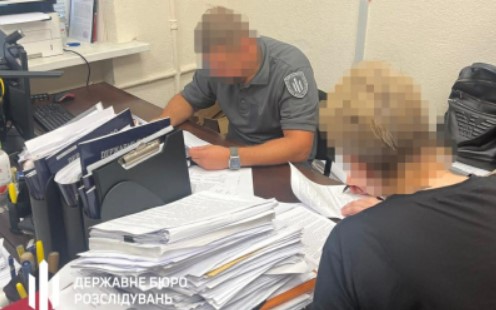In Dnipropetrovsk, a military unit's finance officer will face trial for allocating fake "combat" bonuses to her subordinates.
In the Dnipropetrovsk region, the head of the financial and economic service of one of the military units will stand trial, accused of a large-scale scheme of illegal combat pay disbursement to her subordinates. The materials collected by the employees of the State Bureau of Investigations (SBI) served as the basis for drafting the indictment and submitting it to the court. This was reported by "Vідомо".
The case holds particular significance in the context of martial law, which significantly exacerbates the consequences of such crimes.
The investigation conducted by the SBI uncovered a complex fraud scheme devised and executed by the official of the financial and economic service. The essence of the scheme involved artificially creating conditions for subordinates to receive illegal funds under the guise of combat pay.

To achieve this, the woman developed and signed an order stating that nearly the entire personnel of the financial and economic service — financiers and accountants — was supposedly deployed to eastern Ukraine to perform combat tasks as part of one of the operational-tactical groups.
However, the reality sharply contrasted with the content of the order. As the investigation established, none of the employees mentioned in the document participated in combat operations. They continued to perform their regular duties in the rear while receiving substantial bonuses intended for military personnel directly involved in combat.
For six months, this illegal scheme brought significant profits to the perpetrator and her accomplices: six employees of the financial and economic service were illegally paid over 700,000 hryvnias. Although this amount is substantial in itself, it represents only the visible part of the damage inflicted on the state.
The financier has been charged under two articles of the Criminal Code of Ukraine: part 4 of article 191 (embezzlement of someone else's property by abusing one's official position under martial law, in large amounts) and part 1 of article 366 (the creation of knowingly false official documents by a public official). The article provides for punishment in the form of imprisonment for up to eight years.
Previously, we reported that in Kamianske, two officials received a quarter of a million hryvnias in salaries for non-existent workers